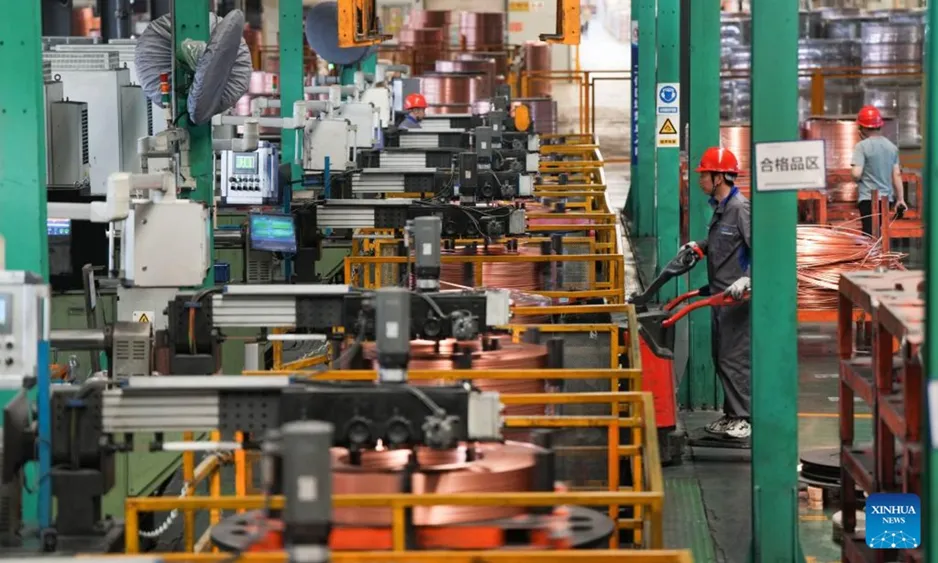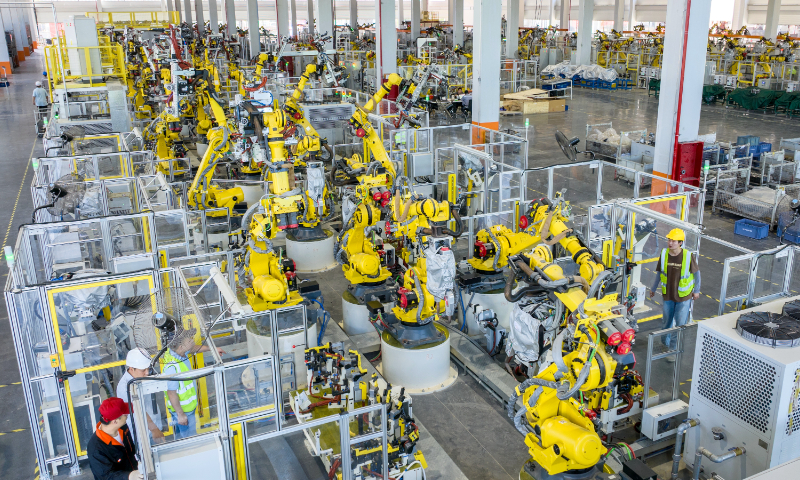US Imposes 50 Percent Tariffs on Copper Products Impact on China

The recent decision by the United States to impose a staggering 50 percent tariff on copper products has raised significant concerns regarding its implications for global trade, supply chains, and commodity price fluctuations. While the immediate effects may appear minimal for China, experts warn that the ramifications could ripple through the international market.
US President Donald Trump's announcement encompassed a series of tariff adjustments affecting imports from various nations, including copper products from China, Brazil, and South Korea. As reported by Reuters, this moves away from previous policies and reflects a broader strategy focused on protectionism.
Chinese analysts have pointed out that the 50 percent tariff is likely to affect neighboring countries such as Mexico and Canada more directly. Additionally, high-copper-consumption industries in the United States, including electric vehicles and data management centers, could face higher operational costs.
Despite China being the largest producer of copper products globally, insiders suggest that due to specific trade structures, the effects of US tariffs on Chinese copper exports will be relatively limited. However, the escalation of tariffs could disrupt global copper supply chains, leading to indirect influences on Chinese copper processing costs.
Copper serves as a critical component across various sectors, particularly electronics and automotive manufacturing. In fact, half of the United States' annual copper demand is reliant on imports, highlighting the importance of international supply networks.
The countries most affected by these tariffs will likely include Chile, Canada, and Mexico, given their status as leading suppliers of refined copper to the US market. Data from the US Census Bureau underscores this reality, as these nations contribute substantially to American copper imports.
However, refined copper remains exempt from these tariffs, largely due to the inadequacy of domestic smelting capacity in the United States. Media reports indicate that while the US does mine copper ore, it lacks sufficient facilities to refine this material to meet domestic needs.
Experts believe that countries like Chile and Peru are unlikely to be adversely affected by the tariffs due to this exemption on refined copper. Analysts suggest that if the tariffs specifically target semi-finished products, the overall impact on Chile may decrease significantly.
Wang Wei, a copper researcher from Galaxy Futures, commented that while Chile and Canada may experience some impacts from tariffs on semi-finished products, Mexico could face greater challenges since it exports a substantial percentage of its copper products to the US.
Although China produces a large volume of refined copper, it accounts for a minimal portion of what the US imports. With only 1 percent of refined copper imports coming from China, the tariffs will likely have minimal direct repercussions on the Chinese market.
Furthermore, the broader implications of these tariffs on US industry could exacerbate costs across sectors reliant on copper. Experts have noted that industries from electric vehicles to defense are likely to encounter increased expenses as a result of the tariff imposition, leading to heightened concerns about the future of manufacturing within the US.
Moving forward, experts suggest that the US approach may contribute to a gradual reshaping of global supply chains, as nations like Mexico and Chile seek alternative trading partners and strategies, potentially leading to lasting changes in the global copper market.
Read These Next

Jiangsu Hongwei's Governance Changes and Strategic Shift
This commentary analyzes the significant corporate governance changes proposed by Jiangsu Hongwei Technology Co., Ltd. It highlights potential risks and opportunities arising from the cancellation of the supervisory board, the appointment of a new auditor, and implications for stakeholder trust in light of increased audit fees and past compliance issues.

China's Manufacturing PMI Drops in July Due to Off-Season Rain
China's July PMI fell to 49.3, impacted by off-season and weather, but production and new orders remain resilient.

China New City Group Pursues Digital Transformation Amid Challenges
China New City Group Limited is engaging in a digital transformation initiative by joining the Hong Kong Real World Assets Global Industry Alliance, addressing valuation issues in the market while embracing technology in real estate and finance.
